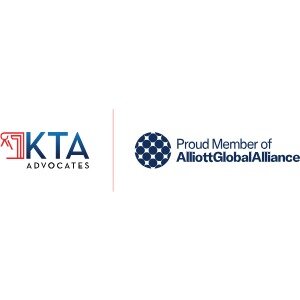Best Bankruptcy & Debt Lawyers in Kampala
Share your needs with us, get contacted by law firms.
Free. Takes 2 min.
List of the best lawyers in Kampala, Uganda
About Bankruptcy & Debt Law in Kampala, Uganda:
Bankruptcy & Debt law in Kampala, Uganda, covers a vast area of legal matters related to financial distress. These laws guide parties involved in bankruptcy processes, creditor-debtor relations, corporate restructurings, and negotiations. Individual's or a corporation's inability to pay debts is often handled under the Insolvency Act of 2011. The law provides for liquidation and receivership proceedings for insolvent individuals and companies with the major aim of protecting creditors.
Why You May Need a Lawyer:
Several situations might necessitate hiring a lawyer for Bankruptcy & Debt in Uganda. If you're unable to pay your debts, a lawyer can guide you through the legal options available, including bankruptcy, negotiation with creditors, or possibly refinancing existing loans. Businesses facing financial distress often need legal assistance to correctly file for receivership or liquidation. Additionally, if you are a creditor, you might need a lawyer to ensure your rights and interests are protected as per the Ugandan laws.
Local Laws Overview:
The Insolvency Act of 2011 is the main regulatory legal framework for Bankruptcy & Debt in Uganda. This act sets out rules for dealing with bankruptcy, provides mechanisms to collect debts and protects the rights of both creditors and debtors. Outstanding debts are categorized as either secured or unsecured. Secured debts are covered by collateral, while unsecured debts are not backed by any possessions. Upon an application for bankruptcy, a trustee may be appointed by the court to administer the debtor's assets and distribute them among creditors.
Frequently Asked Questions:
1. Can all types of debt be discharged under Ugandan bankruptcy laws?
Not all types of debt can be discharged under Ugandan bankruptcy laws. Certain obligations like student loans, child support, and some taxes typically cannot be discharged.
2. What is the difference between liquidation and reorganization?
In a liquidation proceeding, a debtor's assets are sold to repay creditors. In reorganization, the debtor is allowed to keep their assets but must follow a court-approved repayment plan.
3. Who can file for bankruptcy in Uganda?
Both individuals and legal entities, including corporations and partnerships, can file for bankruptcy under Ugandan law if they are unable to meet their financial obligations.
4. How long does a bankruptcy proceeding typically last in Uganda?
The length of a bankruptcy proceeding varies from case to case, depending on the complexity of the debtor's financial situation. It could range from several months to several years.
5. Will my creditors stop harassing me once I file for bankruptcy?
Once a bankruptcy petition is filed and accepted by the court, an automatic stay is implemented which requires that all collection efforts, including calls, emails, and legal actions by creditors cease.
Additional Resources:
In addition to legal representation, consider consulting resources such as the Uganda Law Society, the Uganda Revenue Authority, or the Ministry of Justice and Constitutional Affairs for further information on bankruptcy and debt law. They often provide publications and resources about your rights and responsibilities under Ugandan law.
Next Steps:
If you require legal assistance in matters of Bankruptcy & Debt in Kampala, Uganda, seek the counsel of a lawyer experienced in Ugandan bankruptcy and debt law. Before your consultation, gather all relevant paperwork, including a list of creditors, assets, liabilities, and income. This information will be vital in assisting your lawyer in making the most informed decision regarding your case.
Lawzana helps you find the best lawyers and law firms in Kampala through a curated and pre-screened list of qualified legal professionals. Our platform offers rankings and detailed profiles of attorneys and law firms, allowing you to compare based on practice areas, including Bankruptcy & Debt, experience, and client feedback.
Each profile includes a description of the firm's areas of practice, client reviews, team members and partners, year of establishment, spoken languages, office locations, contact information, social media presence, and any published articles or resources. Most firms on our platform speak English and are experienced in both local and international legal matters.
Get a quote from top-rated law firms in Kampala, Uganda — quickly, securely, and without unnecessary hassle.
Disclaimer:
The information provided on this page is for general informational purposes only and does not constitute legal advice. While we strive to ensure the accuracy and relevance of the content, legal information may change over time, and interpretations of the law can vary. You should always consult with a qualified legal professional for advice specific to your situation.
We disclaim all liability for actions taken or not taken based on the content of this page. If you believe any information is incorrect or outdated, please contact us, and we will review and update it where appropriate.
Browse bankruptcy & debt law firms by service in Kampala, Uganda
Kampala, Uganda Attorneys in related practice areas.















